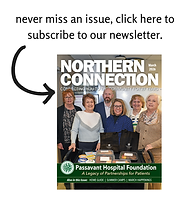What About Dad? Addressing and Supporting Paternal Mental Health
- Jun 6, 2025
- 3 min read
By: Maura L. Johnson, LCSW, PMH-C

June feels like the official beginning of summer. The chaos of “Maycember” is behind us and the school year is ending. Vacation plans, camp registrations, and getting together with family and friends, and relaxation may be at the forefront of our minds. The beginning of summer is also a time to mark Father’s Day—a day meant to honor the father figures in our families and beyond. Whether you celebrate with gifts, restaurant reservations, or hand-made art projects, it’s a day to show the fathers in your life how much they are appreciated.
Fathers Day is a great time to open a conversation about the mental challenges that many new dads (and non-birthing partners in general) face. Many people don’t know that men are susceptible to postpartum depression and anxiety, just like women. Paternal mental health is an essential yet often overlooked aspect of family well-being. Fathers can experience significant mental health challenges, particularly during the transition to parenthood.
Understanding Paternal Mental Health
Prevalence and Timing
Research indicates that up to 14.1% of U.S. fathers experience paternal depression, with the highest rates (up to 25.6%) occurring between 3 to 6 months after childbirth. Additionally, 5-15% of fathers may experience perinatal anxiety (Source: VeryWellMind). While men don’t have the biological and hormonal factors that affect pregnant or post-partum women, men and partners are still at risk of depression and anxiety due to lifestyle changes, sleep deprivation, and more.
Symptoms and Challenges
Men's depressive symptoms include irritability, self-isolation/withdrawal, anger, difficulty sleeping, and difficulty with focus and motivation. Societal expectations and stigma can prevent fathers from seeking help, leading to underdiagnosis and untreated conditions. If these symptoms last more than two weeks, it may be time to talk to a doctor.
Impact on Children
Paternal mental health struggles can significantly affect the family dynamic. It can become difficult to care for yourself or be a present parent for your child(ren) and partner. Mental health conditions like depression and anxiety are treatable. Treating mental health is just as important as treating physical health and many treatment options are available. Everyone deserves to feel like the best version of themselves, in life and in parenthood.
Support and Resources
Many people have a great support system with family and friends that they can share their thoughts and feelings with. But professional support in the form of therapy and sometimes medication management may be extra helpful. Some helpful, free resources include:
SAMHSA National Helpline: 1-800-662-HELP (4357) – A free, confidential, 24/7 treatment referral and information service.
Postpartum Support International (PSI): PSI offers a closed Facebook support group for dads, as well as weekly free, live support group meetings. There is also a Helpline and information available on their website www.postpartum.net.
Maternal Mental Health Leadership Alliance: Provides curated resources to help new fathers navigate parenthood. www.mmhla.org/
Mental Health America: Offers mental health resources tailored for parents.mhanational.org
Tips for Fathers and their Support System
Acknowledge Your Feelings: It's normal to feel overwhelmed and recognizing emotions is the first step toward well-being. As a support person, you can be a safe space and validate your loved one’s emotions. Encourage them with positive feedback and show interest in their treatment journey.
Seek Support: Engage with support groups or mental health professionals when needed. Supporting someone through recovery can be emotionally taxing, so make sure to take care of yourself as well.
Communicate with Your Partner: Open discussions and mutual understanding can strengthen your relationship.
Prioritize Self-Care: Prioritize and protect sleep as much as possible; this is true for both partners. This can be very challenging, especially in the early days, but any little bit helps. Adequate nutrition, rest, and self-care are also important.
Educate Yourself: Understanding the challenges of parenthood can prepare you for the journey ahead.
Parenthood can be one of the most beautiful, yet challenging experiences. The more easily we can face tough conversations and support all parents, the more likely we are to have healthier outcomes and thriving families. Wishing everyone a wonderful June and Happy Father’s Day!
.png)




Comments